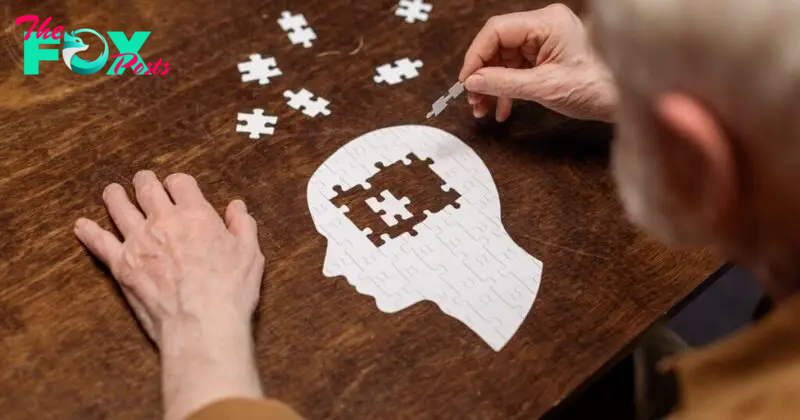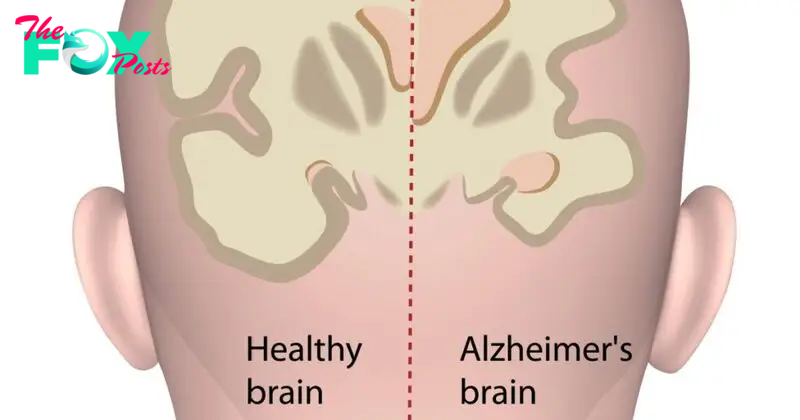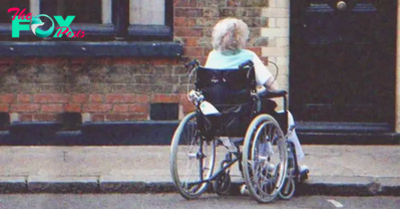Lifestyle
If You Notice This While Brushing Your Teeth, It Could Be a Sign of Dementia

For the person suffering from dementia as well as the ones closest to them, it may be an extremely frightening disease. On the other hand, early detection of dementia symptoms might make everyone feel better prepared. More equipped to handle the ambiguity, emotional upheaval, or perplexity. Fortunately, Dr. Richard Restak’s book, How to Prevent Dementia, was released on October 17, 2023. Some early indicators of the condition are covered in the book. The physician reveals in the book that there are four main dementia early warning indicators. He refers to the symptoms of dementia as the “Four A’s” and describes how they might manifest in routine activities like brushing your teeth. He stated that the exterior manifestations and internal feelings of an Alzheimer’s patient are driven by four deficits.
1. Amnesia may be a sign of dementia

According to Dr. Restak, forgetfulness is a common aging process. Thus, it only warrants concern when it occurs frequently and involving items that ought to be commonplace. For instance, if you routinely lose track of details like your address, name, or family members’ names. He adds that while this is a typical aging symptom, it might not always indicate dementia.
2. Or aphasia

The term “aphasia” describes a problem of comprehension and communication. That is, a person’s capacity for speaking, writing, and reading could deteriorate. On a daily basis, this could appear to be someone who mispronounces a word or has forgotten what it means. Dr. Restak points out that this could not be a reliable indicator of dementia either. Why then include them? The solution is easy to understand. Diseases and people have a significant characteristic. Like diseases, we vary from case to case. No condition fits neatly into a box or checklist, and some symptoms may apply to some people but not to others. Rather, diseases and humans have certain characteristics that may fall into one category but not another. Consequently, even though these dementia symptoms might not apply to everyone, they can significantly help some people learn how to deal with and manage the condition.
3. Appropriate Indices of Dementia: Agnosia and Apraxia

One illness that affects the senses is anemia. It makes it impossible to identify well-known individuals or locations. This can be experienced by touch, taste, smell, sound, or sight. Among the instances are failing to identify a family member, house, or preferred destination for a Saturday excursion. Aphasia, on the other hand, is the final of the four symptoms of dementia and manifests itself when performing routine actions like brushing your teeth. Muscle function and strength are affected by the illness. Although apraxia can cause a person to forget to brush or even have difficulty holding the toothbrush, Dr. Restak cautions that the condition goes far deeper than that. When someone has apraxia, they frequently are unable to “tie all the actions together” or perform them in the right sequence. “An individual suffering from apraxia might be able to identify and even name a toothbrush and toothpaste, but they might not be able to perform the simple act of pressing toothpaste onto the toothbrush.” He composed. “All the muscle parts are there, but they are not able to work together.” Individuals in advanced phases could also find it difficult to take a shower or get dressed.Restak wrote in How to Prevent Dementia that “many, if not all, expressions of Alzheimer’s can be explained by reference to the four A’s.”
4. Alzheimer’s versus dementia

The title of the book is Dementia Prevention. Still, Dr. Restak makes several allusions to Alzheimer’s. This is due to the long-held belief that the two illnesses are very similar. While this is accurate, there are a few significant distinctions between the two, and it turns out that one frequently leads to the other. In general medicine, the term “dementia” refers to brain changes brought on by aging, illness, or trauma. the term used to describe a collection of symptoms that impair a person’s capacity to operate and carry out daily tasks. Conversely, Alzheimer’s is more common in the old and senior population and frequently results in dementia.
5. Having a Conversation with an Expert

It’s advised to get in touch with a medical expert right away if you believe someone you know is showing dementia symptoms. They will have a better understanding of your symptoms and be able to conduct tests that will help determine the exact cause. But the discussion may also be frightening, awkward, and emotionally charged. There are a few things one can do to facilitate a more seamless communication. First, make sure everything is quiet, peaceful, and devoid of distractions like the TV. After that, get ready for an emotional roller coaster. Just provide the facts, but do so in a kind and perceptive manner. SuMMArize the important points in brief phrases and words. Permit the other individual to finish speaking. It might also be advisable in some circumstances to enlist expert assistance. For example, you can probably get emotional support, resources, and sometimes even medical guidance about what’s ahead from a religious leader, a primary care physician, or a certified therapist. In any case, the first step to learning to live with and conquer the obstacles brought on by dementia is being aware of its symptoms.
Animal lover wins $4 million from lottery scratch-off — and donates to local shelter

Should one win the lotto, how would one proceed? Many of us have grandiose ideas of what we would buy with the money, such as a brand-new automobile or home.
However, one Massachusetts man who loved Animals and won millions of dollars from a scratch-off was quick to donate his winnings to Animals that were in need.
Paul Riley, a resident of Peabody, Massachusetts, bought an instant ticket Game for the Massachusetts State Lottery called “100X Cash” from a nearby retailer. According to a news release, he scraped it off and was shocked to learn he had won the $4 million prize in the Game.
Paul, who was described as “an animal lover,” arrived to pick up his reward with his small puppy, Raven:

In response to a question about his future plans, he generously stated that he would be donating a portion of his profits to the Animal Rescue League.
Seeing people give so freely of their riches is always encouraging, especially when it’s done to aid needy Animals. Naturally, Paul intends to lavish himself and his family with money as well. He mentioned that he wants to get his wife a new car.
Paul received $2,600,000 as a one-time payment before taxes, according to the press release. The retailer from whence he purchased the fortunate scratch-off, Summit Variety, will also get a bonus of $40,000.
Congratulations to Paul on his incredible lottery victory! We appreciate your decision to donate to support Animals in shelters!
-

 Lifestyle3h ago
Lifestyle3h agoF1 NEWS: Leclerc & Sainz FURIOUS At Ferrari After SHOCKING RADIO CONVERSATION GOT LEAKED At Las Vegas GP!.cau
-

 Lifestyle4h ago
Lifestyle4h ago'You should have come to the stage,' Diljit reacts to Nimrat’s concert post | The Express Tribune
-

 Lifestyle4h ago
Lifestyle4h agoVarun Dhawan deletes LinkedIn profile within four days amid trolling | The Express Tribune
-

 Lifestyle8h ago
Lifestyle8h agoTyson Fury y Oleksandr Usyk confirman que la pelea por el título mundial indiscutible de peso pesado será la próxima .cau
-

 Lifestyle8h ago
Lifestyle8h agoF1 NEWS: Leclerc GOES NUTS At Ferrari with SHOCKING MESSAGES After DISASTROUS Las Vegas GP!.cau
-

 Lifestyle10h ago
Lifestyle10h agoAsad Siddiqui criticises 'biased casting' in Pakistan’s entertainment industry | The Express Tribune
-

 Lifestyle10h ago
Lifestyle10h agoMaya Ali performs Umrah, shares photos on Instagram | The Express Tribune
-

 Lifestyle14h ago
Lifestyle14h agoSH0CKING: Denzel Washington Turns Down $200 Million Disney Role, Says He Wont Join Woke Culture..cau

























